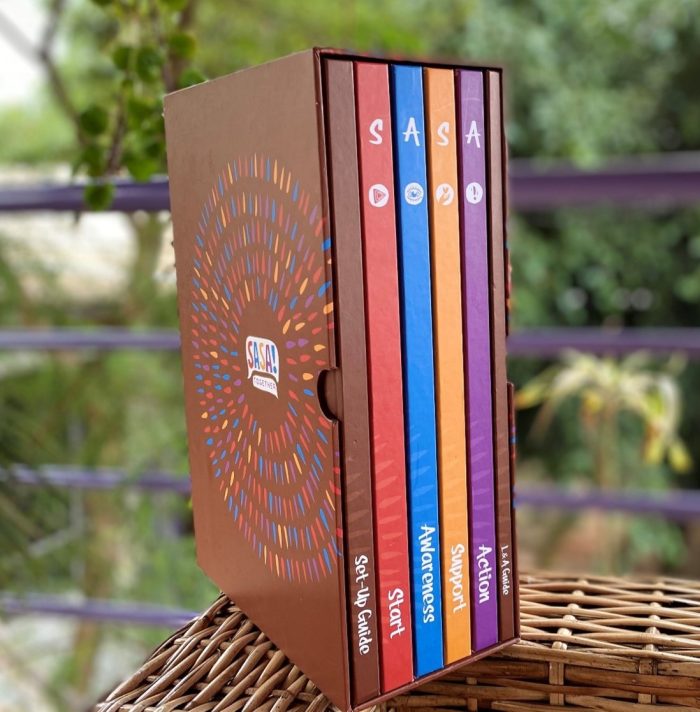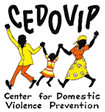Strategic Area 1: Inspire Activism and Advocacy to change Social Norms
Our experience over the years has demonstrated that VAWG prevention is possible, when programming is based on feminist principles, is deep and sustainable. We believe in the power of communities (women and men) to create an environment where the rights of women and girls are respected and VAWG is unacceptable and is actively and effectively rejected. This work builds on and further strengthens our rich history and expertise. We are connecting our strength and power in national level normative frameworks and local community mobilisation into one unit for better and more coordinated and effective work.
We will continue working towards building a critical mass of community activists whose bold collective action will deliver sustainable and effective VAWG prevention. We will sustain our relationships with everyday women and men, community and religious leaders and support them to influence social norm change. We will partner with women’s rights organisations to support mobilizing, organizing, and building a grassroots movement against VAWG.
Social norms are symbolised and reinforced in multiple sites including in digital and traditional media spaces. We will maintain our partnerships with the media to engage wider audiences in VAWG awareness raising and to catalyse citizens’ collective action to challenge dominant narratives and to promote equitable gender norms.
We aim to empower women and girls to exercise agency and autonomy over their bodies and lives. We will hence educate them about their rights and to support them to speak out, with a collective voice, against violence and to demand for VAWG services that are responsive to their needs. Furthermore, we seek to transform the power imbalance in intimate relationships through taking the community members through a process of social change and collective visioning. We will engage men and boys whilst ensuring that their involvement does not have negative physical or systemic effects on women and girls.

Inspire Activism to change Social Norms
We aim to use the two strategies of SASA! Together to mobilize the community for VAWG prevention as follows:
A. Local activism strategy
Local activism digs the most deeply into the degrees of what it means to balance power in relationships. The local activism strategy will engage the individual and interpersonal circles of influence. The strategy will be led by a diverse team of carefully selected and trained women and men who live and work in the community and represent different groups and abilities. These community activists will be supported by staff to conduct informal, fun and personal activities to reach family, friends, couples, neighbors and peers. Activities will include:
- Training and mentoring of staff on the SASA! Together approach.
- Selection, training and mentoring a team of community activists on all the phases of SASA! Together to lead the SASA! Together activities.
- Asset mapping and entry meetings in new communities.
- Outreach activities that include poster discussions, community conversations, community dramas etc. throughout the four phases of SASA! Together.
- Referrals of survivors of violence for further support and Emergency funds for survivors who are in dire need.
- Collaboration meetings and self-care activities.
- Public events and recognition of activists’ work.
- Development of communication materials.
- Exit activities.
- M&E activities.
B. Community leadership strategy
The community leadership strategy will be led by female and male leaders who hold either formal or informal decision-making positions. The community leaders will include, village/clan elders, marriage counsellors (sengas), cultural and religious leaders, landlords/landladies, local council officials, teachers, and business owners. This strategy engages at the community level to influence norms. Specific activities will include:
- Training and mentoring of staff on the approach.
- Selection, training and mentoring a team of community leaders to lead the SASA! Together activities.
- Outreach activities that include social media campaign, quick chats, village meetings, public events etc. throughout the four phases of SASA! Together.
- Referrals of survivors of violence for further support.
- Collaboration meetings and self-care activities.
- Exit activities.
- M&E activities.
Outcomes for inspiring activism to change social norms:
- Reduced tolerance of VAW by community members.
- Improved relationships between women and men.
- Reduced tolerance of VAW and improved response among community leaders.
- Community members join efforts to collectively prevent VAW in their neighborhoods.
3 “Improved” is defined as: balanced power within intimate relationships, joint decision making, improved couple communication and negotiation skills.
C. National advocacy for law reform and implementation
We aim to enhance political will to enact and amend VAWG responsive laws and ensure allocation of resources, and implementation of these laws to protect survivors of violence and to hold perpetrators accountable. This work will be led by CEDOVIP and working collectively with the Domestic Violence Act Coalition as well as existing women’s rights coalitions and the women’s movement to promote gender equality. We will intensify our engagements with the justice, law and order sector to ensure that it takes appropriate corrective action, including law and policy reforms to outlaw VAWG. We will maintain our partnership with the Uganda Women Parliamentarians Association (UWOPA) to ensure that parliament enacts outstanding VAWG bills into laws. Furthermore, we will advocate for national budget allocation for VAWG to ensure that resources are allocated to implement VAWG laws and policies through the following strategies, namely:
Engagement in policy and legal reform processes with parliament and Uganda Law Reform Commission (ULRC). Specific activities will include:
- Periodic policy and legal scans and assessment of implementation of specific EVAW laws to identify areas of strengthening.
- Work with and train the DVA coalition to lobby parliament and other government bodies to allocate necessary resources for implementation of national VAWG policies and laws.
- Periodic meetings/dialogues between CSOs and parliamentary committees to address VAWG.
Legal literacy campaign. Specific activities will include:
- Partner with ULRC to translate specific VAW laws and raise public awareness.
- Advocate for inclusion of VAWG issues in upcoming bills and training for government officials.
- Multimedia campaign to popularize existing and upcoming EVAW laws and upcoming EVAW bills.
- Provide necessary tools to guide effective implementation of EVAW laws.
Campaigns
Including annual 16 days of activism campaign and media campaigns.
Coordinate a vibrant coalition to amplify voices to end VAWG. Specific activities will include:
- Conducting transformative trainings for members.
- Advocacy meetings to set advocacy priorities.
- Joint engagement in policy review.
- Engagement of policy makers.
- Address backlash to gender equality work.
Advocacy for reforming institutional practices to deliver survivor – centered services. Specific activities will include:
- Lobbying and steering committee meetings with the leadership of the institutions.
- Periodic review and assessment of the operating procedures of the partner institutions.
- Tailored capacity building activities for the partner institutions.
Outcomes:
- Vibrant women’s rights organizations advocating for law reform and implementation.
- Supportive social infrastructure with EVAW Laws and policies that are protective of women and girls.
- Increased public awareness of and use of the existing EVAW laws.
- Women’s enhanced access to justice
